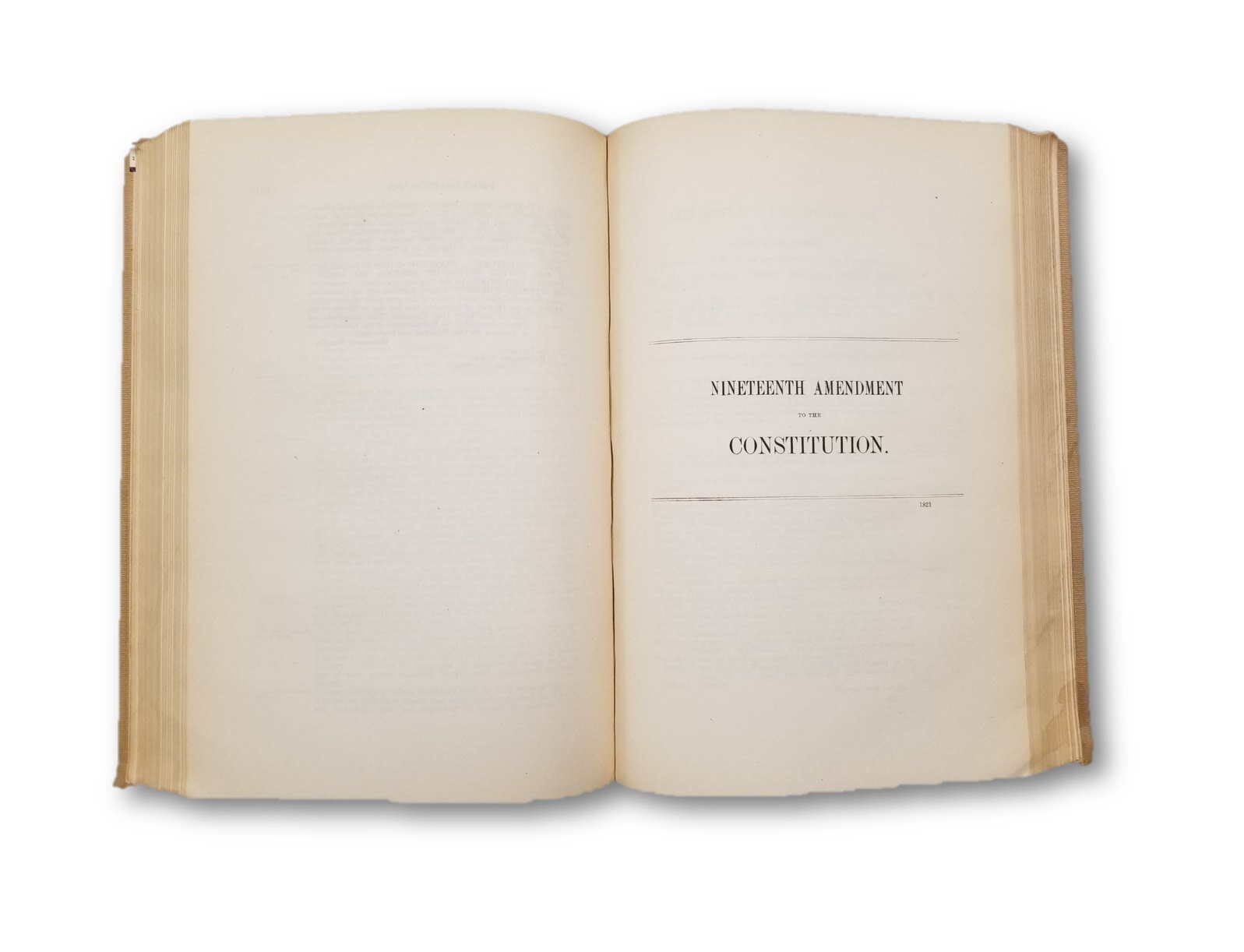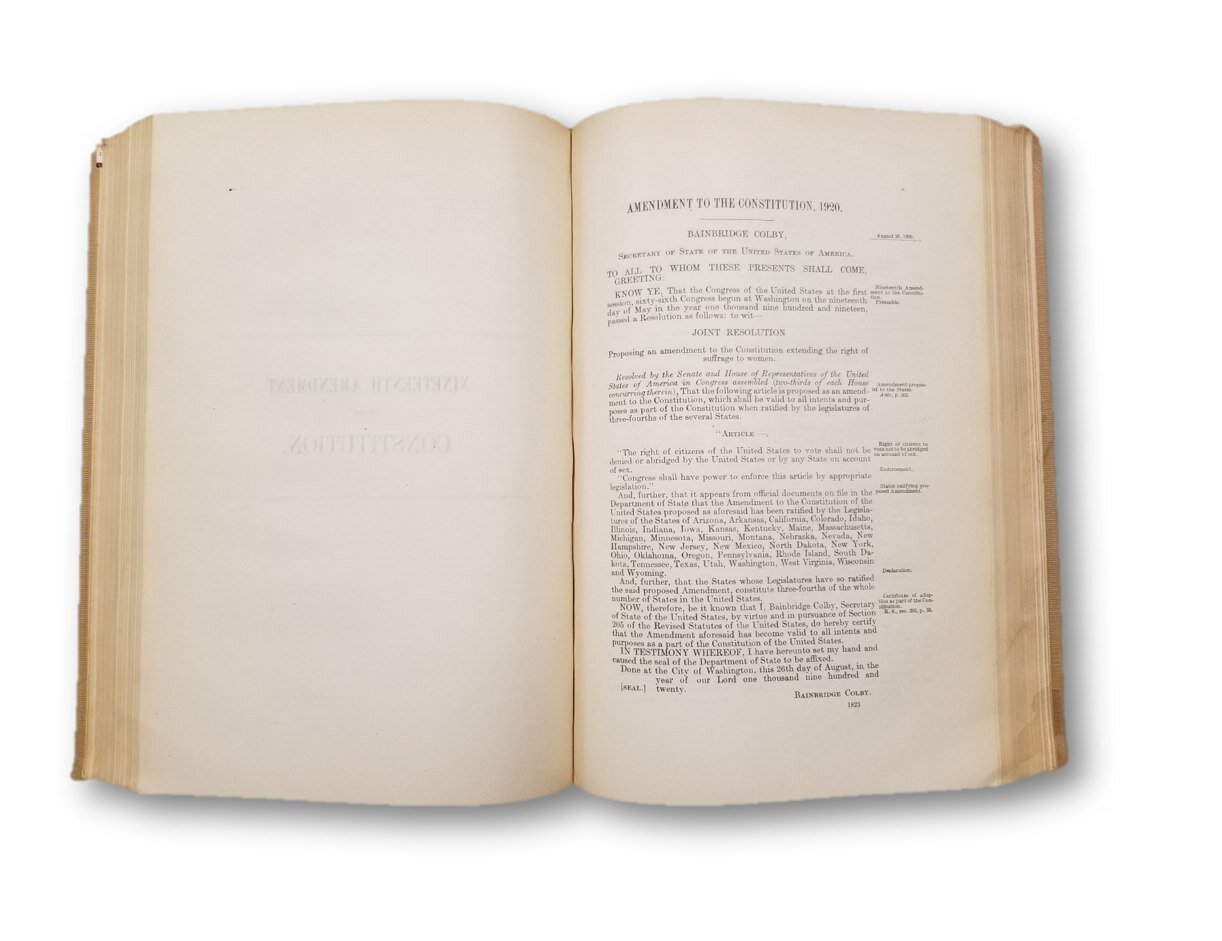For Immediate Release
August 14, 2020
The Harris County Law Library announces a virtual 19th Amendment Centennial Symposium on Tuesday, August 18, from 2pm to 4pm. The event, titled “Votes for Texas Women,” will focus on the history of women’s suffrage and the importance of inclusion in law and government.
“We are thrilled to offer this educational opportunity to everyone on the 100th anniversary of the day the 19th Amendment was ratified,” Law Library Director Mariann Sears said. “We hope that sharing the stories from the historical and legal texts of the brave women who fought for the right to vote by protesting and reaching out to their representatives, even as the 1918 pandemic raged on, can connect more people with the rich history surrounding the amendment.”
Mariann Sears, the first woman to serve as director of the Law Library, will welcome three distinguished women from the local legal community to share their expertise. Marie Jamison, a partner at Wright Close & Barger, will share her research into the history of the 19th Amendment and the progress made in the century that followed. Professor Renee Knake Jefferson, the Joanne and Larry Doherty Chair in Legal Ethics Director at University of Houston Law Center and author of Shortlisted: Women in the Shadows of the Supreme Court, will discuss her research concerning the overlooked history of the nine women who were shortlisted for nomination to the U.S. Supreme Court, but not nominated between the 1930s and 1980s. Justice Frances Bourliot, Fourteenth Court of Appeals Texas, will discuss the importance of inclusion on the bench and her experience as an appellate justice.
“The passage of the 19th Amendment, which prohibited denying a person the right to vote on the basis of sex, was an important step toward protecting voting rights in America,” County Attorney Vince Ryan said. “We are pleased with the Law Library’s efforts to celebrate the legacy of women’s suffrage and the contributions of women in law and government over the last century.”
Registration is now open and free to all at https://www.harriscountylawlibrary.org/19thamendment. The program is accredited by the State Bar of Texas for 2.0 hours of continuing legal education credit with 1.0 hour of ethics credit. In addition to the Harris County Attorney’s Office, this Law Library program is made possible with the support of the Houston Bar Association, League of Women Voters of Houston, and Women of Law.
About the Harris County Law Library
The Harris County Law Library opened in 1915 and has continued to serve Harris County’s legal information needs for more than a century. After joining the Office of Vince Ryan, Harris County Attorney, in 2011, the Law Library greatly expanded its technology offerings and services to the public. Ryan’s support for the revitalization of the Law Library was recognized by the American Association of Law Libraries in 2016 when he was named the Law Library Advocate of the Year. To learn more about services and digital collections, visit the Harris County Law Library Virtual Reference Desk at https://www.harriscountylawlibrary.org.









